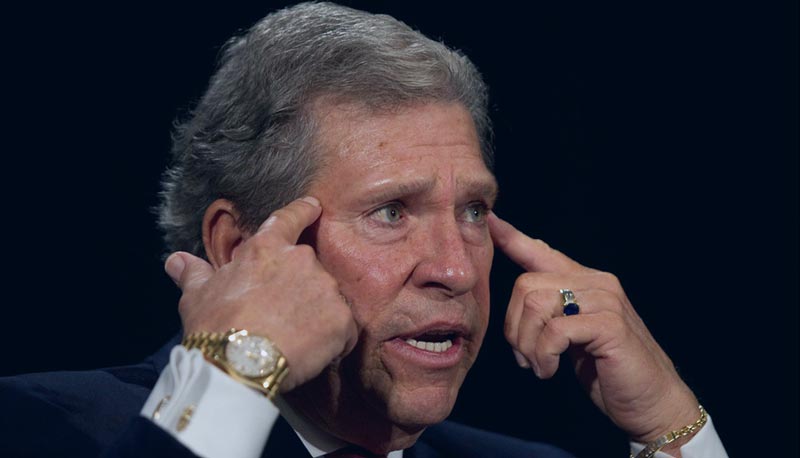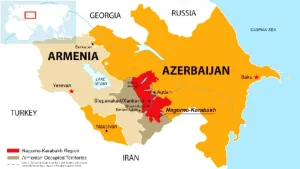The railroads still belong to Hunter Harrison – even now that he’s gone
5 min read
Anyone who can provide a resume showing they worked under four-time railroad CEO Hunter Harrison is a hot business these times.
The latest is Sameh Fahmy, a retired senior vice-president at Canadian National Railway who’s soon reaching the Harrison gospel of Precision Scheduled Railroading (PSR) as a specialist at Kansas City Southern. The railroad’s shares jumped more than six percent last Friday, the day it declared it was using Fahmy as a management expert to assist introduce PSR.
On January 7th, Union Pacific stated that it appointed former CN chief operating manager Jim Vena who served under the late Hunter Harrison.
Table of Contents
The legacy of Hunter Harrison: How his leadership impacted the rail industry
UP, the biggest of the so-called Class 1 railroads, saw its assets rise sharply after the decision of hiring someone who understands Harrison’s secret recipe. The US$9 billion judgment in UP’s market capitalization was suggestive of the increase in CSX’s value in January 2017 after Harrison moved Canadian Pacific Railway several periods early to kind the Jacksonville-headquartered railroad his fourth reversal (he died in December 2017). Harrison also produced Fahmy to CSX that year to guide on where to obtain responses.

‘I’m flesh and ancestry and I’m hereabouts to help you’: Hunter Harrison’s transmutation model
Legendary railroader Hunter Harrison, who changed Canada’s CP and CN, dies at 73
CSX CEO Hunter Harrison takes therapeutic leave between controversial rail overhaul
Coincidentally, the day after news of Vena’s hiring, hundreds of railroad building and support professionals filled a ballroom at the JW Marriott in Marco Island, Fla. for a panel talk about Harrison and what business, analysts, investors, and media now call PSR (I was one of the panellists).
At various points, he called the theory the scheduled railroad, precision railroading or general sense. He didn’t consider what it was called. It was the information that decayed — longer, faster, on-time trains, using the several assets possible.
To Harrison, it was as much about the training and coaching agents to be better managers at the companies he ran. He thought everyone could continuously grow. Half of it, he told me, was likely supervisors that “they’re not harming people when they ask somebody to work eight hours.”
Hunter Harrison and the future of cost-cutting measures in railroads
He also didn’t wait to terrify employees into thinking he meant business. That could mean barging into the mailroom, delivering a phone out the window for effect and fully demanding that money shouldn’t be ruined by shipping a package via FedEx to a local address.

Harrison did not require to create precision railroading, but he was its most famous proponent. His mentor, “Pisser” Bill Thompson, a fearsome John Wayne-type who presented Harrison seem like Mother Theresa, taught his cocky protege a basic principle: the fewer cars in the yard, the better.
While many froze his direct approach, Harrison still has numerous disciples throughout the business, people who’ve seen their market value increase as railroad. Railroad has dropped to market demand to establish his modus operandi. Other retirees who served with him are scattering off their CVs for companies great to imitate his ways. Hunter Harrison has invested his time in the exploring the ideas to increase business productivity.
The question is, can managers at Union Pacific, Norfolk Southern and Kansas City Southern do something Harrison did at Illinois Central, CN, CP and CSX? He was a unique character willing to do the offensive thing, over and over, to gain his ends.
Not everyone has the warm makeup to face the blowback that goes with that. Harrison’s character surely paid a price. For all his in-your-face ways, he was especially susceptible to criticism, tied to his intense want to constantly prove himself.
Meantime, a major railroad investor informed me he thinks Jim Vena could be end route to the CEO’s office at UP. If that were to occur, with Keith Creel atop CP, Jim Foote running CSX and Jean-Jacques Ruest the chief administrator at CN, four of the six biggest railroads would be run by somebody who worked under the brash railroader who started out flowing oil into wheels of boxcars in Memphis in 1963. While Hunter Harrison no hard runs railroads, his spirit most certainly does.
Key Takeaways about Hunter Harrison
Hunter Harrison was a Canadian businessman and railroader who served as the CEO of several major railroad companies throughout his career, including Canadian National Railway, Canadian Pacific Railway and Illinois Central. He was known for his focus on cost cutting and efficiency, and was often referred to as a “turnaround specialist.”
Hunter Harrison began his career in the rail industry as a train conductor for Canadian National Railway. Over time, he rose through the ranks, eventually becoming CEO of the company. He then moved on to lead other major railroads such as Canadian Pacific Railway and Illinois Central.
Hunter Harrison passed away on December 16th, 2017.
Hunter Harrison was the CEO of several major railroad companies throughout his career, but they were not owned by him personally. He was an employee of the companies, not an owner. The railroads continue to operate and be owned by the companies that they are part of.
It is difficult to say for certain without knowing the specifics of the individual companies, but it would be unlikely for a change in management to happen immediately after the death of a CEO. The companies that Hunter Harrison led would likely have a plan in place for leadership transition and continuity of operations. Any changes that may happen would likely be decided and announced by the board of directors and upper management of the individual companies.







